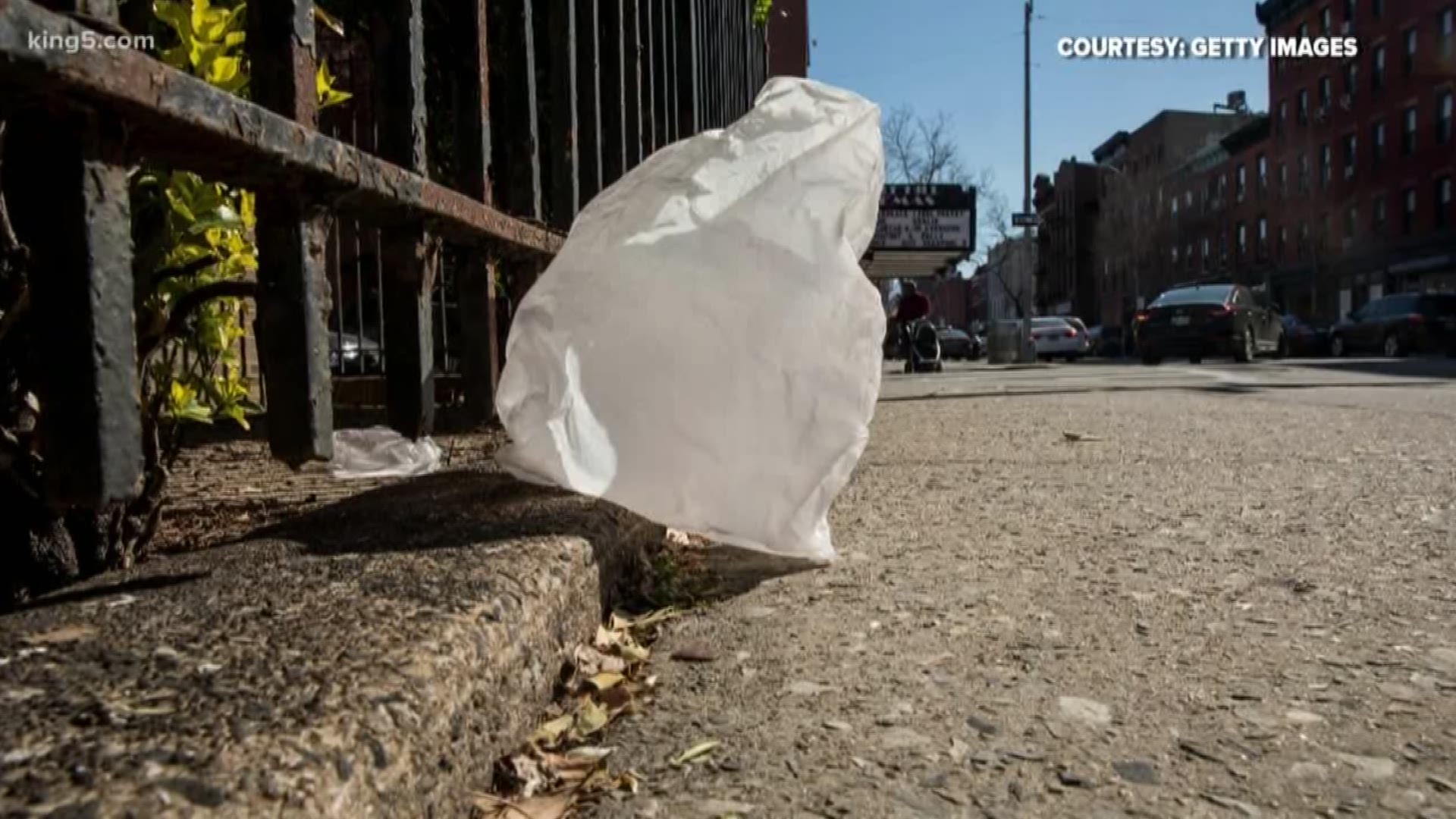The effort to set standards for plastic bag use across Washington state is underway.
On Thursday morning, the Senate Committee on Environment, Energy & Technology heard public testimony regarding legislation that aims to establish state standards for use of bags within retail.
As it's currently written, Senate Bill 5323 would prohibit retailers from providing a customer a single-use plastic bag, or a paper or reusable bag that does not meet specific recycling requirements. It would also require retailers to collect a pass-through charge of at least 10 cents for each recycled paper or plastic bag provided.
RELATED: Should our state ban plastic bags?
Jeni Woock, a member of the Gig Harbor City Council, encourages the regulations on single-use bags.
In December, the Gig Harbor council voted to ban plastic bags in retail stores. It will take effect later this year and prevent retailers from giving customers thin, single-use carry-out bags.
Woock said statewide regulations would further protect Washington's waterways and get everyone on the same page.
Holly Chisa with the Northwest Grocery Association told the Senate committee they are in support of the effort. Though the association is working with environmentalists to craft amendment language, she points out that the legislation doesn't just target grocery stores, but all retailers that use single-use bags - with some exceptions, such as pharmacies.
Mark Johnson with the Washington Retail Association said he appreciates the effort to regulate bags across the state, instead of leaving it up to individual jurisdictions. He said he would like to see exemptions on some bags, such as pillow bags.
If approved, the bill would preempt local ordinances. A number of local jurisdictions in Washington state have passed ordinances that regulate the use of single-use plastic carry-home bags. If approved, SB 5323 would preempt local bag ordinances. It would also allow local governments to increase the pass-through charge on the recyclable bags.
Enforcement would be primarily based on complaints filed with the Department of Ecology.

